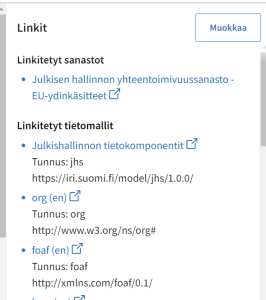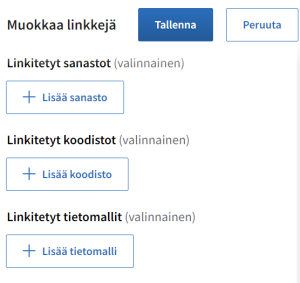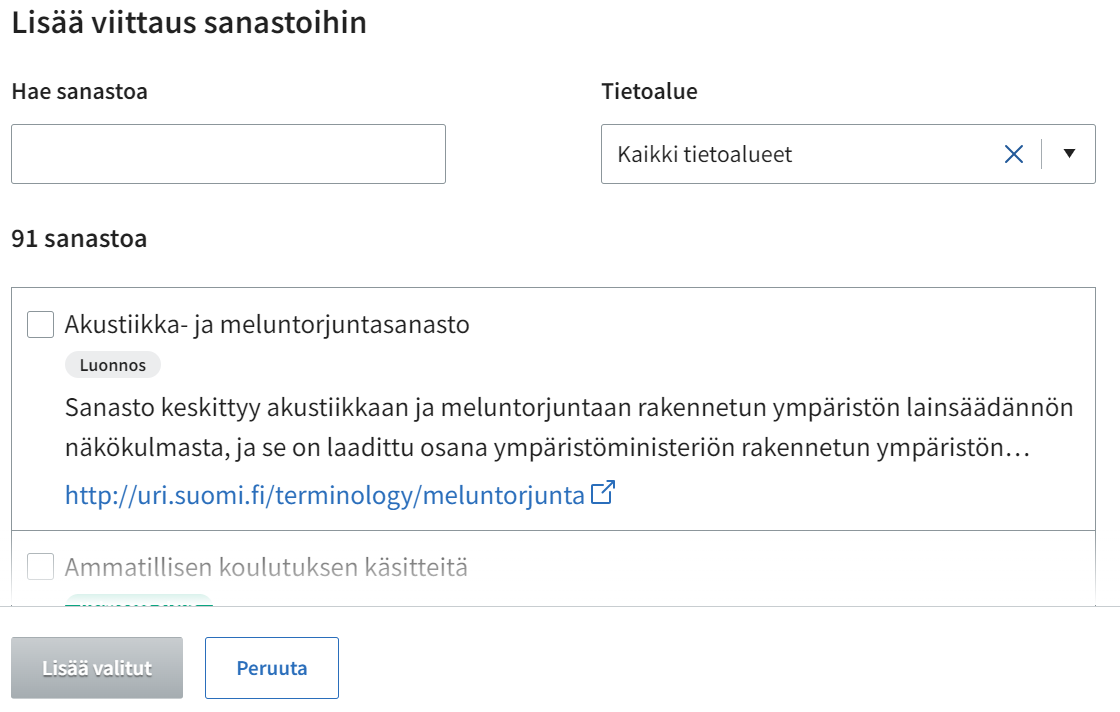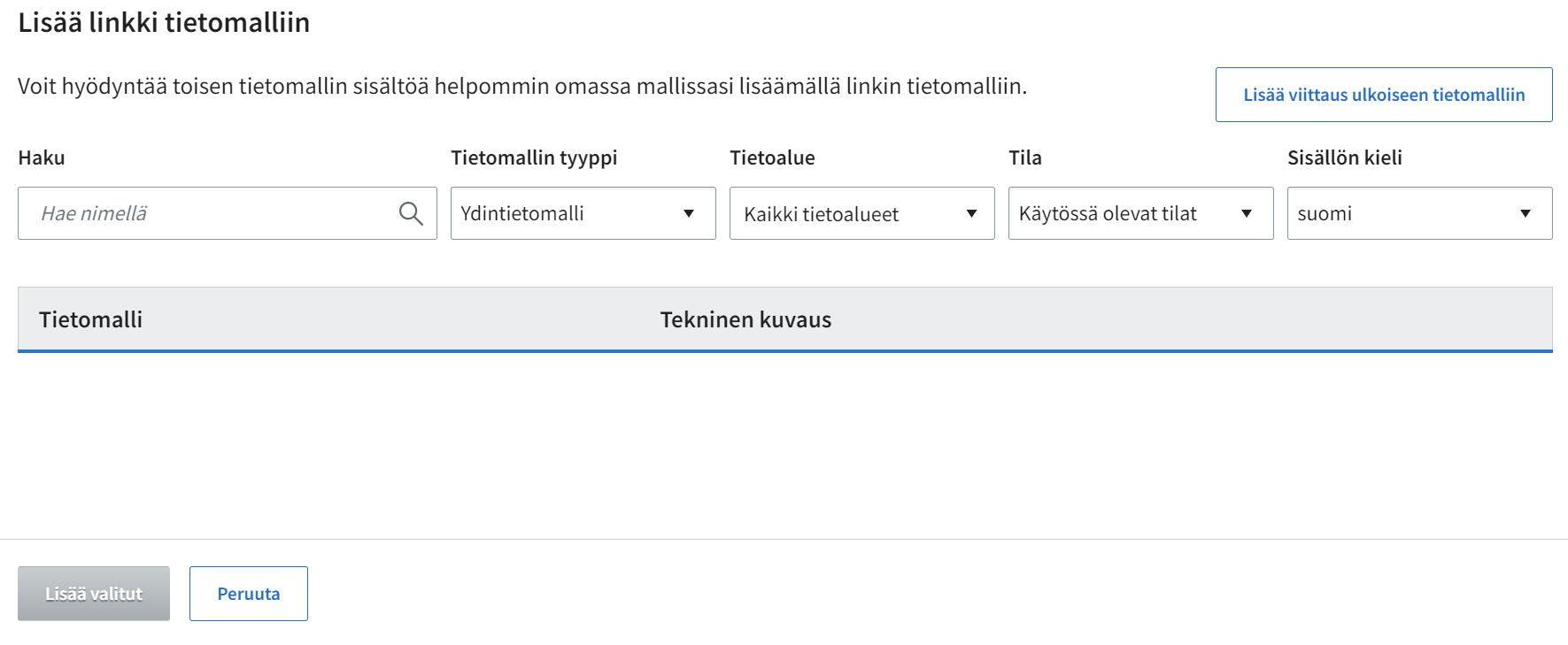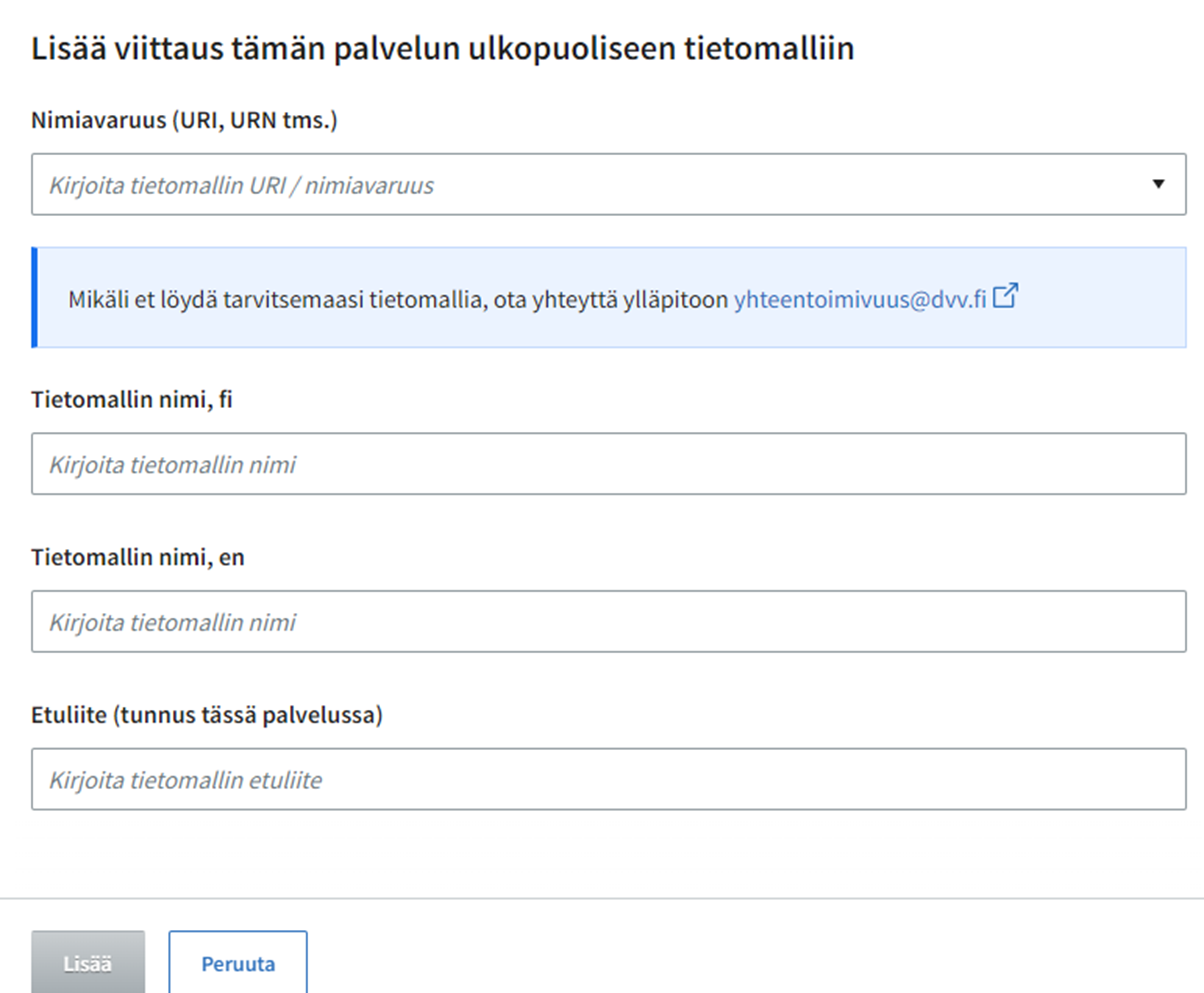The tool lists, to the Links tab, the linked resources terminologies, code lists and data models used in this data model.
If you have the editing rights to the data model, you can also see the Edit button on the page. Click the button to start adding links with a web form.
It is also possible to use the tool to create links automatically while modelling, when:
- linking a new concept to your data models class restriction, attribute restriction or association restriction
- linking a new code list to the attribute restriction or
- linking a resource from a new data model that is not yet linked to your data model.
Linking the terminologies
Click the Add terminology button to start adding a link to a terminology in the Terminologies Tool.
Search the right terminology either by entering a search word to Search for terminology field or by browsing the list of terminologies. Select one or more terminologies by checking the box next to the terminology. The tool adds the chosen terminology or terminologies to the Links-tab. Click the Add selected button to save the changes.
Linking the data models (namespaces)
Click the Add data model button to start adding a link to another data model.
It is possible to add links to a data model in the Data Vocabularies Tool as well as to an external data model. You can search the data models by name. The search results can be filtered with following information:
- Type of a data model: a core vocabulary or an application profile
- Information domain: filtering with the information domain; the information domains are listed on the front page of the tool.
- Status: As a default, Statuses in use is used, which have Suggested and Valid as well as Draft status, used internally in the user’s organization. Other options are All statuses and Statuses not in use, which are Superseded and Retired.
- Model languages: Languages used in the data model.
Select one or more data models by checking the box next to the data model. The tool adds the chosen data model or models to the Links tab. Click the Add selected button to save the changes.
Click the Add reference to external data model button if you want to add a link to an external data model (namespace).
Select the data model from the drop-down menu. If the data model you want is not included in the list, contact support for the Interoperability platform. The support team can add an external data model to the list if it is established and resolvable; the latter meaning that the data model or ontology is redirectable in the Internet.
- Namespace: The URI or IRI address of the data model, or if those are not available, a normal URL-based web address
- Data model name: a text field where you can assign the name of the data model with all the languages used in your data model.
- Prefix: the identifier of the data model in the Data Vocabularies Tool. The prefix must be unique; it cannot be same as another resource already described in the Interoperability Platform.
When you have added the necessary information, click the Add button. The tool adds the data model you described to the Links tab. Click the Add selected button to save the changes.
Linking the code lists
In the application profiles, it is also possible to link code lists (reference data) to the data model.
Click the Add code list button to start adding a link to a code list in the Reference Data tool.
Search the right code list either by entering a search word to the Search for code list field or by browsing the list of code lists. Select one or more code lists by checking the box next to the title. The tool adds the chosen code list or code lists to the Links tab. Click the Add selected button to save the changes.
